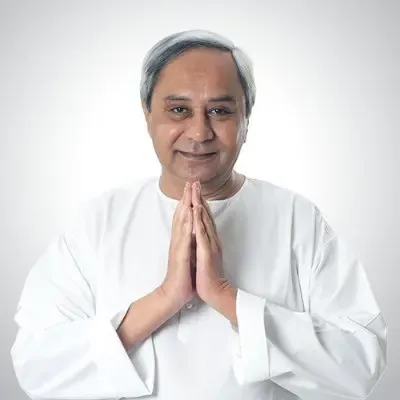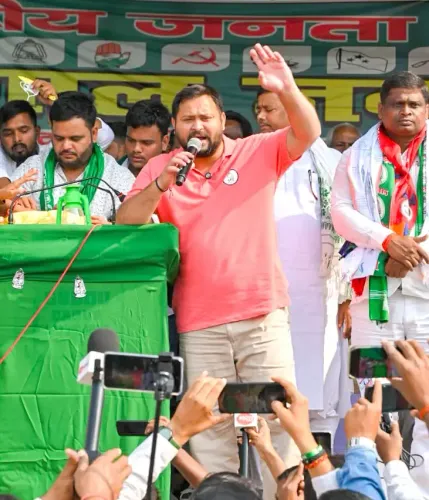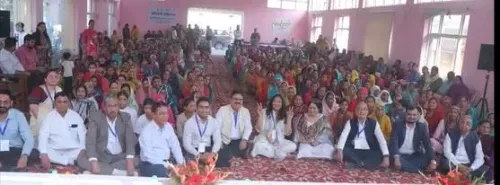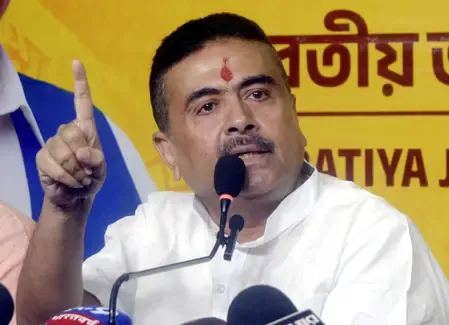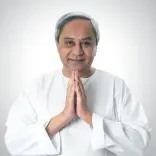Will the Delhi HC Rule on Kejriwal and Sisodia's Liquor Scam Pleas?
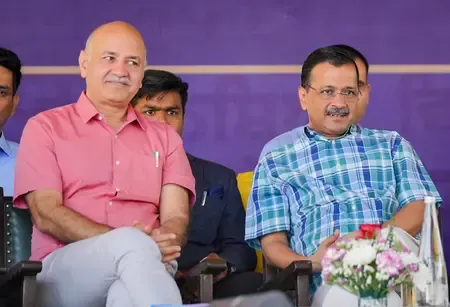
Synopsis
Key Takeaways
- Delhi HC to review significant pleas on liquor scam.
- Kejriwal and Sisodia challenge trial court's decision.
- Allegations include misappropriation of over Rs 2,026 crore.
- CAG report raises concerns over policy transparency.
- Political implications could reshape AAP's future.
New Delhi, May 4 (NationPress) The Delhi High Court is set to consider a plea on Monday from former Chief Minister Arvind Kejriwal, challenging the trial court's action in acknowledging the Enforcement Directorate's (ED) prosecution complaint concerning the purported liquor policy scam.
According to the causelist available on the Delhi HC website, a single-judge Bench led by Justice Ravinder Dudeja will examine Kejriwal's plea on May 5, alongside a similar motion filed by senior AAP leader and former Deputy CM Manish Sisodia.
Both Kejriwal and Sisodia have submitted separate petitions to the Delhi High Court, seeking a halt to trial proceedings on the grounds that the trial court had acknowledged the alleged offences under the Prevention of Money Laundering Act (PMLA) without prior sanction from the ED for prosecution.
With the Union Home Ministry granting the ED authority to prosecute Kejriwal and Sisodia regarding the alleged liquor scam, the ongoing petitions may become irrelevant, leaving the AAP leaders with limited options, possibly requiring them to file new proceedings against the sanction.
During a past hearing, while awaiting the competent authority's approval for sanction, the ED argued before the Delhi HC that since the alleged act of money laundering did not fall under the category of 'discharge of their official duties', both the former CM and Dy CM could be prosecuted without needing sanction under Section 197 of the Code of Criminal Procedure (CrPC).
In December of the previous year, Kejriwal’s attorney had contested the adjournment requested on behalf of the ED due to the absence of Additional Solicitor General (ASG) S.V. Raju, advocating for an expedited hearing in light of the upcoming Delhi Assembly elections. Subsequently, a Bench led by Justice Manoj Kumar Ohri scheduled the matter for January 30, but Kejriwal's plea was postponed multiple times due to time constraints, as noted in the order sheet on the Delhi High Court's website.
Central agencies allege that Kejriwal, along with other AAP leaders, received bribes from the 'South Group', a cartel purportedly controlling liquor sales and profiting from the Delhi government's 2021-22 excise policy. It is claimed they misappropriated over Rs 2,026 crore as the liquor excise policy lacked transparency and was rife with illicit decision-making favoring select licensees, according to a recent report by the Comptroller and Auditor General of India (CAG).
The auditor's report indicated that the government lost approximately Rs 890 crore due to the AAP government's failure to re-tender surrendered retail liquor licenses.
The CAG report raised significant concerns regarding the AAP government’s policy formulation and execution, highlighting several irregularities such as lack of pricing transparency, violations during license issuance and renewal, failure to penalize offenders, and neglecting to seek approval from the L-G, Cabinet, or Assembly. The report also mentioned an additional loss of Rs 941 crore due to exemptions granted to zonal licensees. It accused the Group of Ministers, led by Sisodia, of disregarding the recommendations of the expert panel and permitting disqualified entities to bid for licenses.
While on bail, former CM Kejriwal has denied all allegations, asserting that the BJP is utilizing central agencies to target political adversaries.

